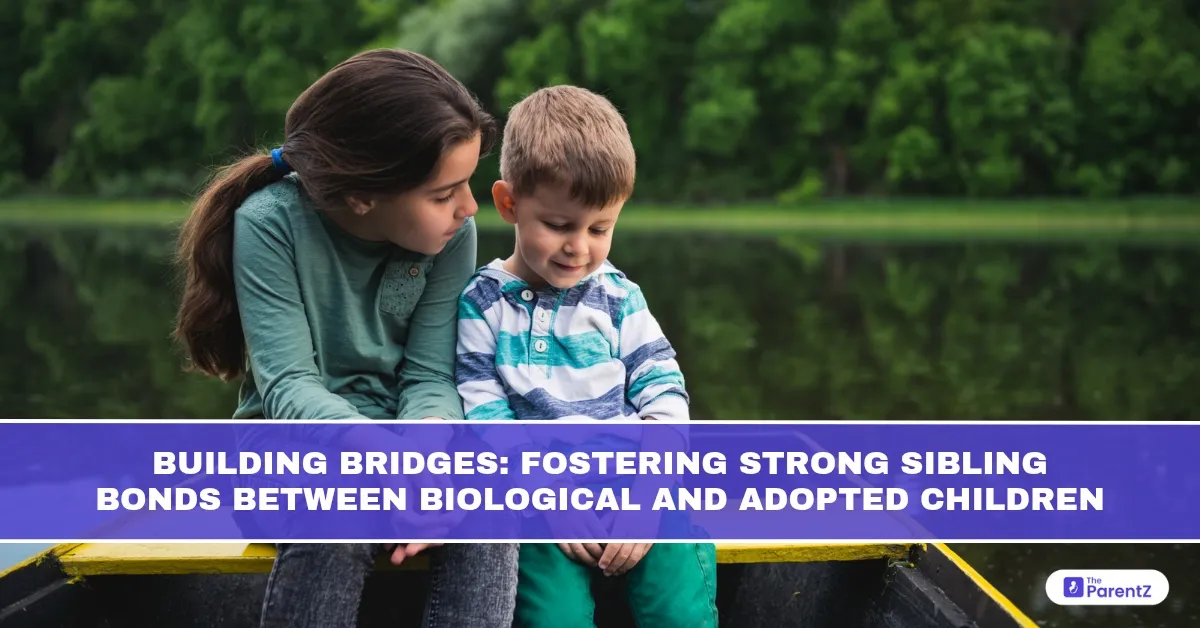When you picture your children years from now—grown, laughing at old jokes, supporting each other through life’s twists and turns—you probably imagine a bond that runs deep. But if you’re raising both biological and adopted children, you may wonder: Will they truly see each other as siblings? Will they connect on that unshakable level?
The truth is, building sibling bonds doesn’t happen overnight. Whether your children share DNA or not, what really creates that lifelong connection is shared memories, trust, and the feeling of being part of a family where love is not divided—it’s multiplied.
Read this article to explore how you can build those bridges, especially when your family is beautifully blended through biology and adoption.
Acknowledge That It’s a Journey
First, give yourself—and your kids—grace. The sibling bond is a relationship like any other. It takes time, space, and patience. There may be moments of competition, confusion, or insecurity, especially if one child is trying to figure out where they fit in a new family structure.
You don’t need to force love. You just need to make room for it.
Let your children ask questions. Let them feel all the feels—curiosity, jealousy, protectiveness, or even pride. When those feelings are validated, not silenced, something magical begins to happen: emotional safety.
Create Shared Rituals, Not Just Shared Rooms
Sure, bunk beds and toy sharing might seem like the fastest route to bonding—but the real connection comes from shared experiences. That might look like a weekly movie night where they take turns picking the film, helping each other build a Lego city, or Saturday pancake breakfasts where they pour the batter together
You want them to have “their thing.” Something they giggle about when you’re not in the room. Something that’s just theirs.
Address Differences With Honesty, Not Silence
Your adopted child may look different from your biological one. Or maybe they’ve come from a background filled with trauma or loss. Pretending that everyone is the same doesn’t create unity—it creates confusion.
Instead, teach your kids that differences don’t divide us—they deepen us.
Let them hear phrases like, “You’re both fully and completely my children—and each of you brings something special to our family.”
Let their questions come. Your answers don’t have to be perfect—just honest and loving.
Avoid Comparison Culture
One of the biggest bonding blockers between siblings—biological or adopted—is comparison.
Avoid saying things like, ‘Why can’t you behave like your brother?’ Or ‘She’s so much better at math than you.’
Even well-intentioned praise can plant seeds of resentment. Instead, celebrate their individuality while reinforcing that each of them belongs fully, without needing to compete for love.
Encourage Sibling Advocacy
Empower your children to stand up for each other. If someone at school questions their sibling’s background, let them know it’s okay to say, “That’s my brother. That’s all that matters.”
Give them language for loyalty. Help them build not just a sibling relationship—but a sibling team.
That involvement builds empathy—and trust.
Conclusion
At the end of the day, biology might explain how a family starts—but love is what makes it last.
There’s no single blueprint for raising siblings who are bonded for life. But if you lead with empathy, invite open conversations, and prioritize connection over perfection, you’re already laying the foundation.





Be the first one to comment on this story.